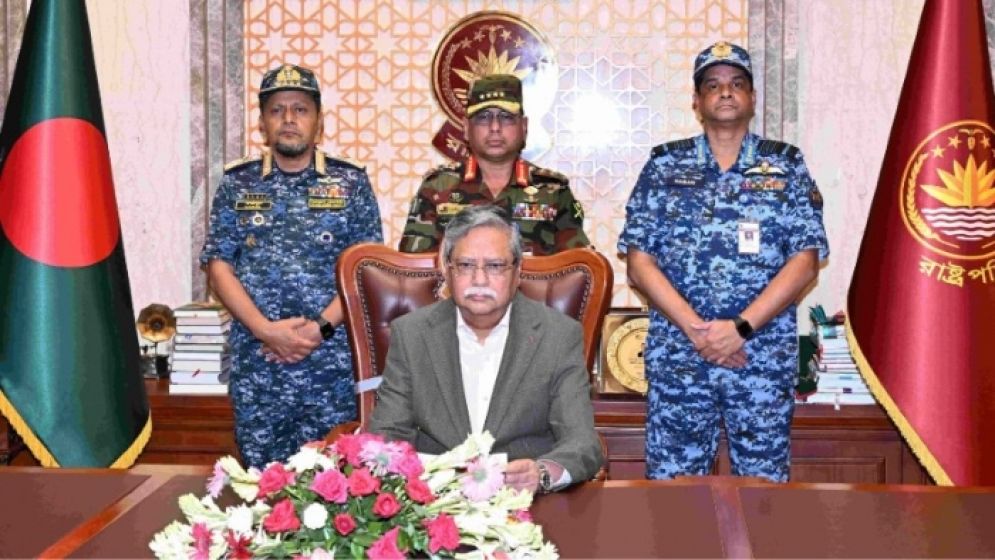
President Mohammed Shahabuddin has dissolved the National Parliament following a crucial meeting with key stakeholders, including the heads of the three armed forces, political party leaders, civil society representatives, and leaders of the Anti-Discrimination Student Movement. The President's office announced this decision in a press release. This move has been accompanied by notable political developments, including the release of BNP Chairperson Khaleda Zia and the beginning of the release of individuals detained in connection with the student movement and other cases. Facing a nationwide uprising that turned deadly, Sheikh Hasina fled the country. General Waker-Uz-Zaman, Chief of Army Staff, met with political leaders and student coordinators who led the movement against the Awami League government. The coordinators, representing the Anti-Discrimination Student Movement, have appointed Dr. Md Yunus as chief advisor, and he has accepted the role. A full interim government is expected to be announced today. After Sheikh Hasina resigned as prime minister on August 5 and left the country, there was no opportunity for the president to consult her. To address the constitutional crisis and safeguard national security and economic stability, the President has decided to exercise his discretionary power to dissolve the Twelfth National Parliament, according to a press release from the law ministry. The press release was issued today by the ministry secretary, following Law Minister Anisul Huq’s reported departure from the country. Khaleda Zia, a former prime minister, was sentenced to five years in prison on February 8, 2018, for corruption in the Zia Orphanage Trust case. She was later convicted in another corruption case the same year. At 78, Khaleda suffers from numerous health issues, including liver cirrhosis, arthritis, diabetes, kidney problems, lung issues, heart conditions, eye problems, and post-COVID complications. During the coronavirus pandemic, the government temporarily released Khaleda Zia from jail on March 25, 2020, through an executive order suspending her sentence, provided she remained at her Gulshan residence and did not leave the country. Her release has been extended every six months based on her family’s requests. ____

